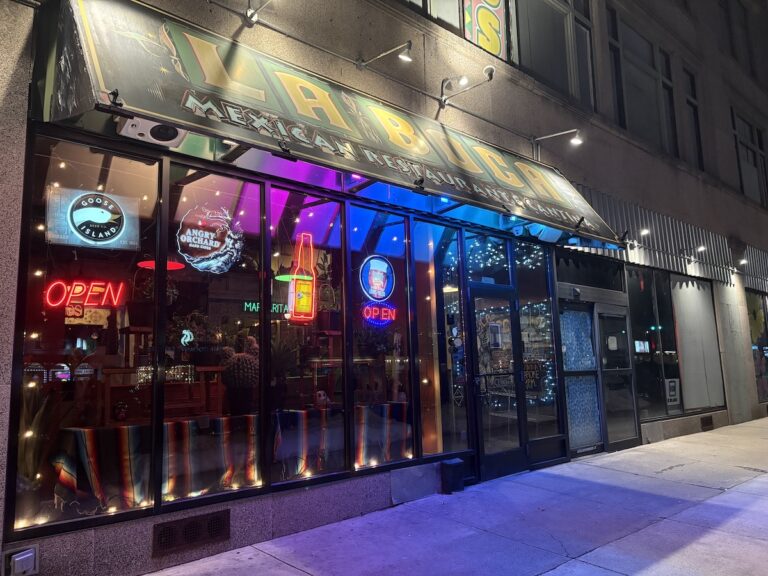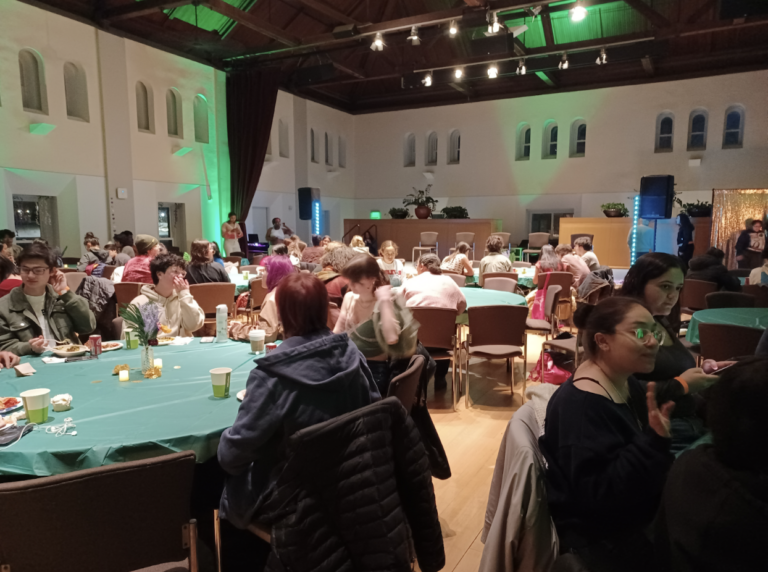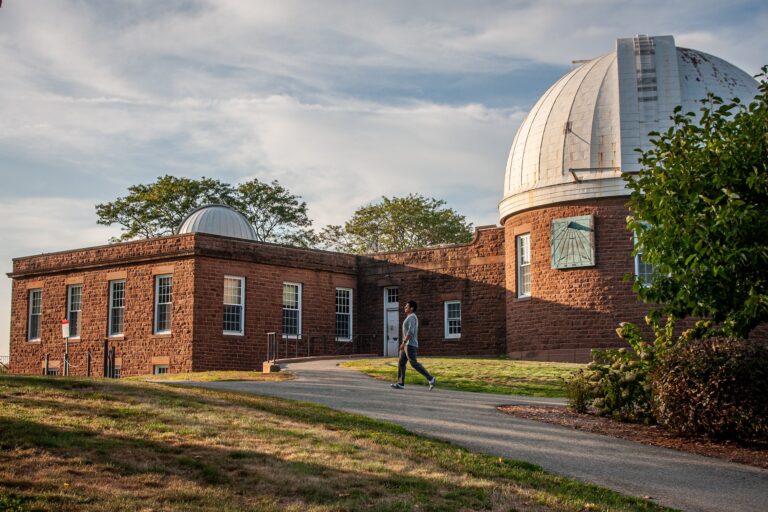The Lost Brotherhood: the Tragic History of Chi Psi at Wesleyan
You probably went to a frat this weekend. Eclectic had a concert, Beta had some crowded party, DKE kids did the DKE chant (“Delta Delta Delta!”). Despite Wesleyan’s reputation for its “alternative” scene, frats remain a pillar of campus social life, with students flocking to the huge, old houses on High Street in search of various cheap thrills. Around the corner, another stately mansion remains relatively ignored by the pleasure-seeking crowd, weekend after weekend.
The 200 Church dormitory has everything the other fraternities on campus have: old brick, double doors, and a long history of hard partying. That’s because it belonged to their ranks for over 150 years as the Alpha Alpha of Chi Psi fraternity, the once-notorious stomping grounds of such distinguished alums as the football coaches Bill Belichick and Eric Mangini.
As one of the university’s oldest fraternities, Chi Psi’s history was as tumultuous as its reputation was tawdry. Its demise, however, brought on by a series of unfortunate events and pure bad luck, could have taken down any frat.
The 1830’s and ‘40s saw an explosion of fraternities on campus, edged along by President Stephen Olin, a passionate supporter of the Greek tradition. Eclectic and the Secret Society the Mystic Sevens were formed in 1837, and Psi Upsilon came six years later, one year before the inception of Chi Psi in 1844. Lead by the charismatic student Elbert Roberts, Chi Psi built itself upon the tenants of brotherhood and the social aspects of a fraternity, something the founders saw lacking in campus Greek life at the time.
“While these societies did not ignore the social element, they still did not make it prominent,” wrote the Chi Psi historians in an on official history of the fraternity. “Hence, there was clearly room for an organization which would give prominence to sociability.”
Chi Psi quickly became a tight-knit and exclusive group, rarely exceeding a dozen members in the first two decades of its existence. By the 1850’s, the fraternity had obtained its first meeting-house: two rooms above a grocery store on the corner of Center and Main streets, where they held meetings and stored important objects, such as a “highly-elevated throne” carved by a brother as the fraternity president’s seat.
“We are flourishing, of course, like all genuine Chi Psis,” wrote brother Horace Parmenter to a friend in the early 1850s, “for they have got it in em’. Manliness, ‘grit’, scholarship, and joviality are the elements. We number 15 picked men, just enough… to give us stability and character.”
And yet, a decade later, Chi Psi would be disbanded for the first time in 1863, under mysterious circumstances.
“In the spring of 1863, some of the members became a little too fast, bringing discredit upon themselves and upon the Alpha,” reads the at times ambiguous fraternity history.
In the late 1800’s the word fast had implications that it no longer holds, implying that someone was indulging in extravagant and even immoral behavior, according to the Oxford English Dictionary.
One student was expelled and another would later resign from the college due to this “fastness.” Humbled, the chapter sent its charter to the presiding officer of the fraternity at Hamilton College and ceased to exist on campus.
Yet within 20 years, students would find a renewed interest in Chi Psi, traveling to Amherst to be initiated so they could reopen the Alpha Alpha chapter once again. By 1904, construction of what is now 200 Church St. would be completed by the national organization of Chi Psi, its first brothers moving in that fall. Chi Psi would flourish throughout the first half of the century before its long road to nothingness began in 1978.
An alum’s visit to their former frat house in that late year found the building in disrepair, noting “dirty dishes and decaying food in the sink, dilapidated furniture, and animal droppings all over the house, among other things,” as well as crumbling ceilings, faulty wiring, and deteriorating brickwork, according to an Argus article from the time.
Further alumni research into the state of Chi Psi discovered more woes. Significant debts to the Chi Psi national organization, to the city of Middletown for back taxes, and to the University, who still held the first mortgage on the house, added up to over $65,000. Necessary repairs peaked at over $100,000. Chi Psi alumni and university administration, specifically dean of students, Ed Shanahan, a former brother, officially condemned the house in the winter of ‘78.
Brothers describe themselves as “embittered,” receiving much resistance from the student body, according to an Argus article from March of ‘79. Later that spring, the school bought the building, renovating the top floors. Chi Psi was given 20 years to buy the house back until the University evicted the fraternity. Until then, members could live there without paying residential life fees, but under the agreement that the building was now university property and that a good image had to be maintained.
Twenty years later, in the late ‘90s, the Chi Psi brothers passively allowed their former residence to fall permanently into university hands, neglecting to purchase the building under the stipulations that had been laid down two decades ago. Within another two years, the chapter would separate from the national organization, citing conflict and frustration over the loss of the house from both parties. Bill Green, then-chairmen of Chi Psi National, declared the chapter dormant and was supported with a board vote of 45 to 4.
Chi Psi’s fate was sealed. As a group of self-operating frat boys living on university property, they were a massive liability to the school.
“The mission of that facility has been built around Chi Psi as an organization,” said Vice President of Student Affairs Michael Whaley, in a 2001 Argus article. “If it doesn’t exist, the mission of the program house is called into question.”
The brothers were evicted later that year, inciting a scandal that involved the destruction of roughly $6,000 in private property by Physical Plant after brothers didn’t move out quickly enough.
The Argus documented attempts by the final generation of Chi Psi brothers hold on to their quickly vanishing lifestyle.
“They tried to take our Kegerator,” lamented brother Andrew Yawitz 01’, “we had to sit on it all day to keep them back.”
Repeated alcohol offenses and fire safety violations blocked the fraternity’s later appeals for program housing. Left houseless and without structure, Chi Psi would fade into oblivion and complete obscurity.
Now, 200 Church stands as a program house for students interested in civil justice and multiculturalism, ironically enough. The rooms of the fast-living frat boys of Chi Psi for almost a century are now populated by freshmen fully unaware of their legacy. With the Kegerator long gone and the parties replaced by conventional dorm living, Chi Psi has been relegated to the Olin library archives and the memories of former brothers.







I’m not sure I like the juxtaposition of “students interested in civil justice and multiculturalism” and “fast-living frat boys” in your last paragraph, as though the two are mutually exclusive. You make frats sounds like the KKK.
Good story, Justin. I lived in the house as a Chi Psi brother between the fall of 1997 and the spring of 1999, and it was a fun place, but no more “fast” than Eclectic, Beta, Outhouse, or even Clark 3. And no less multicultural or politically active than any other residential building on campus. (As proof, look up what jobs the brothers have now.) Because we didn’t have enough brothers to fill the house, some rooms were occupied with women, and the house was multiracial; the residents derived from all strata of society. Still, I don’t see a place in the future for the antiquated idea of a fraternity, though I’d like to think, with a little bit of vision from all parties, Chi Psi could have been given the chance to keep evolving as a Wesleyan-specific organization. We took the history of the building very seriously, even as we passed out next to the Kegerator.
What happened to sputnik? did Paul take it back?